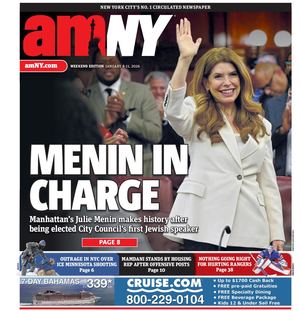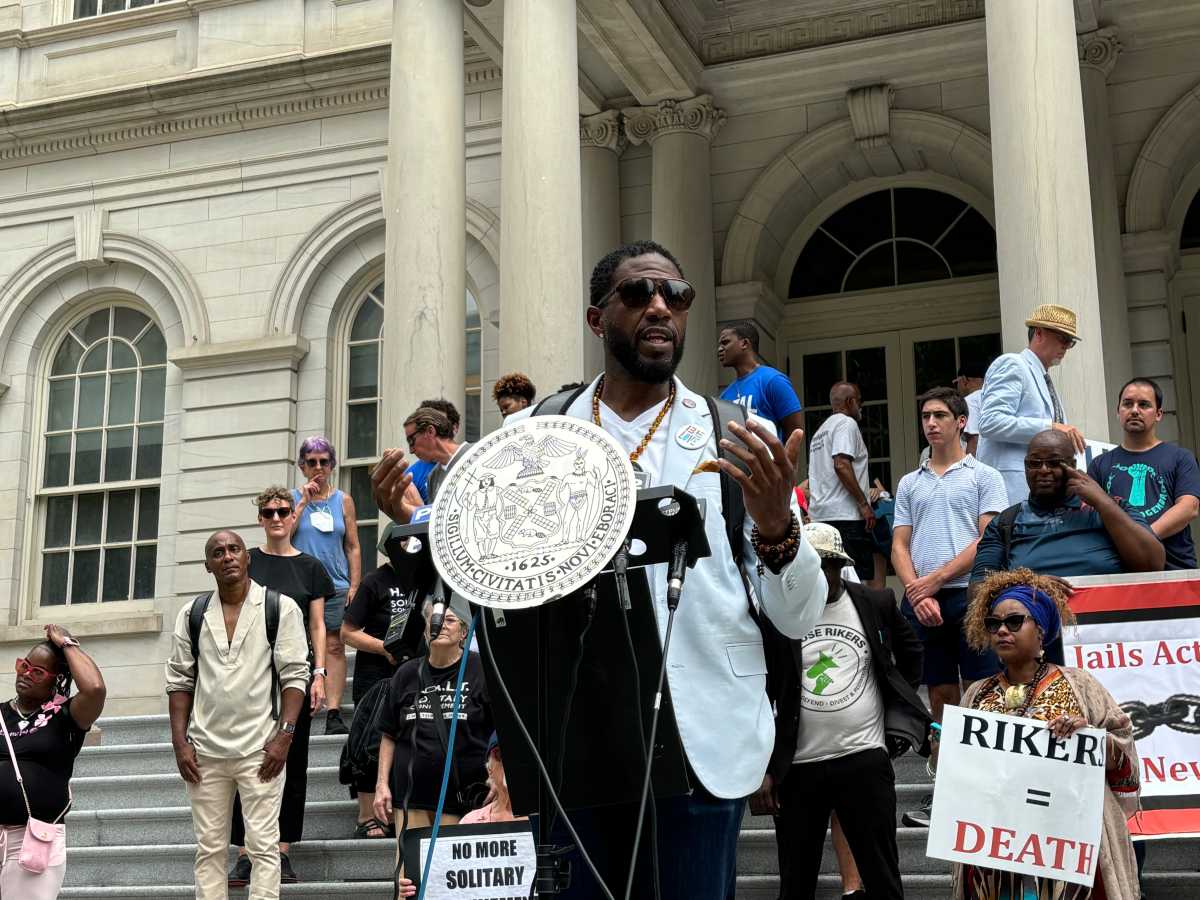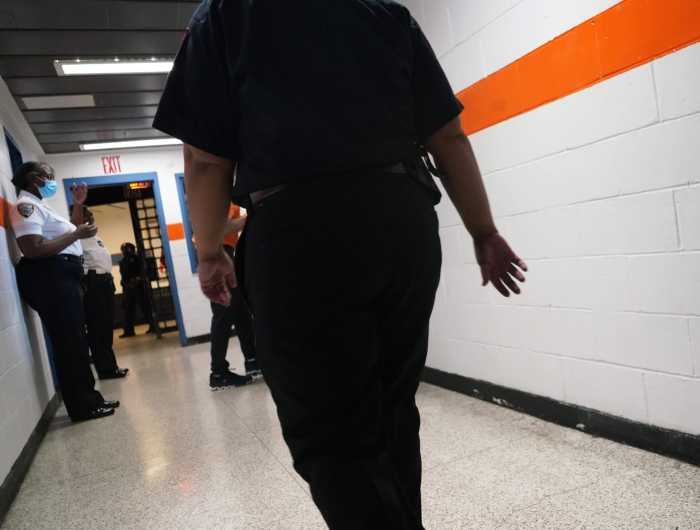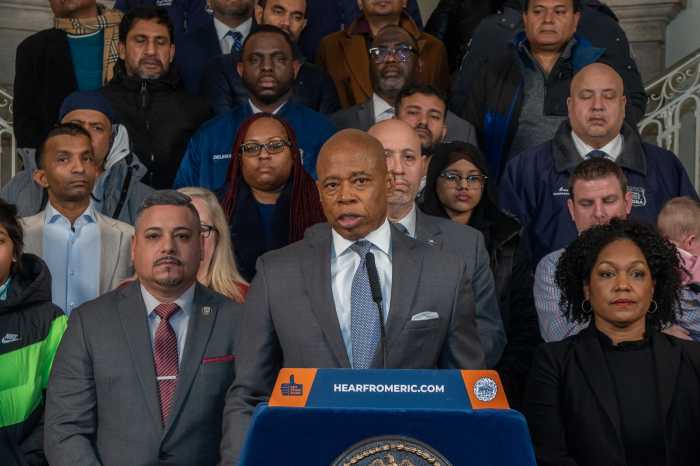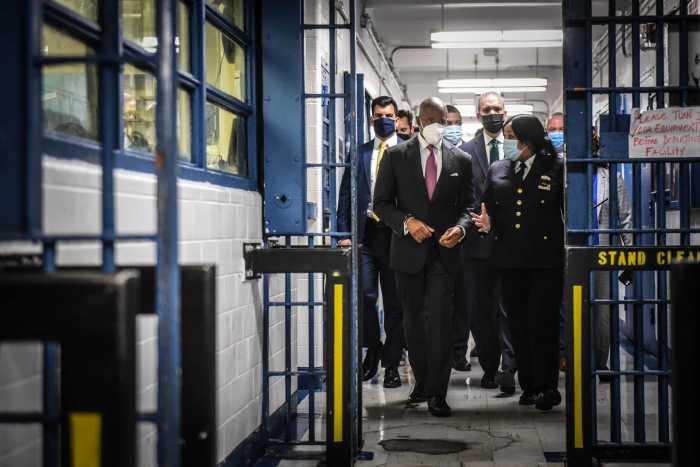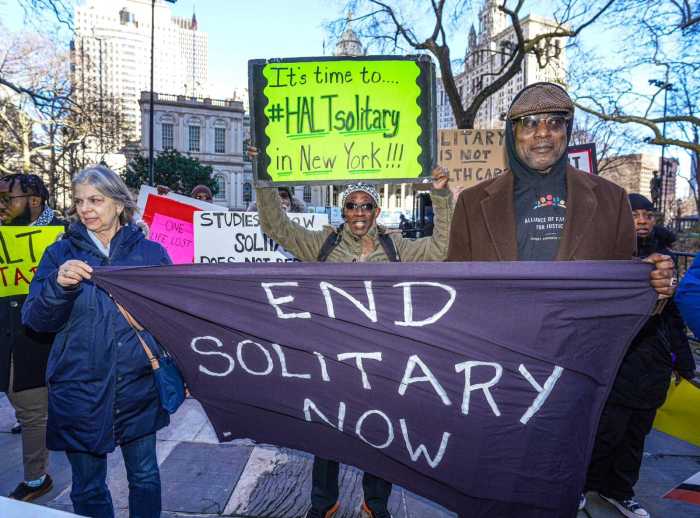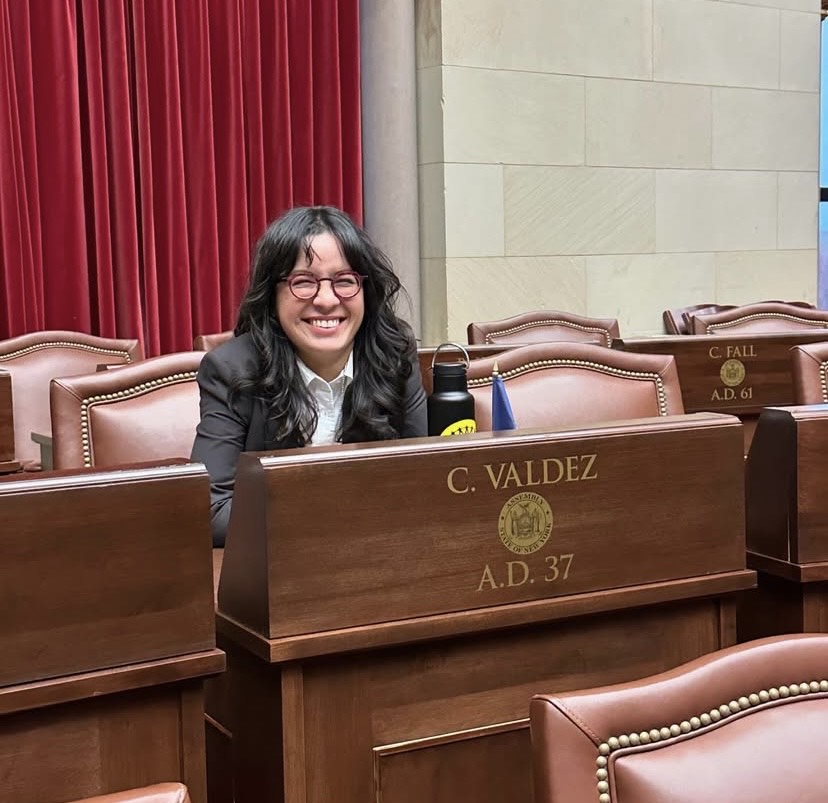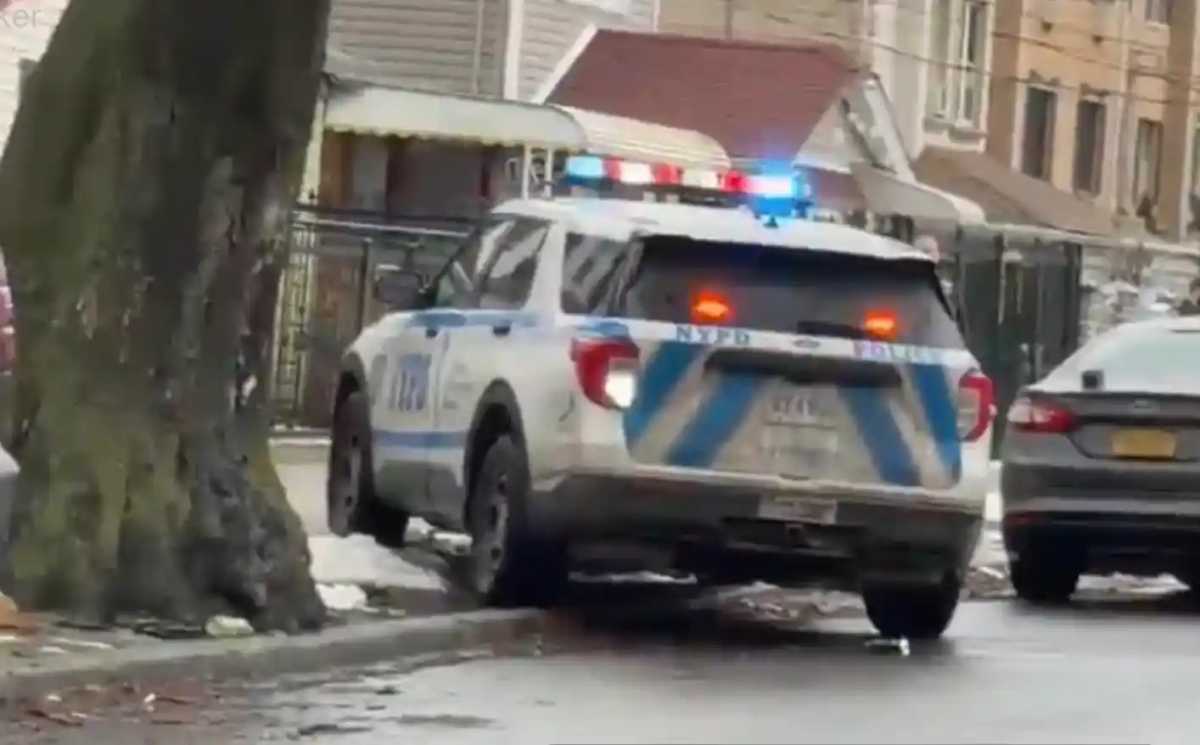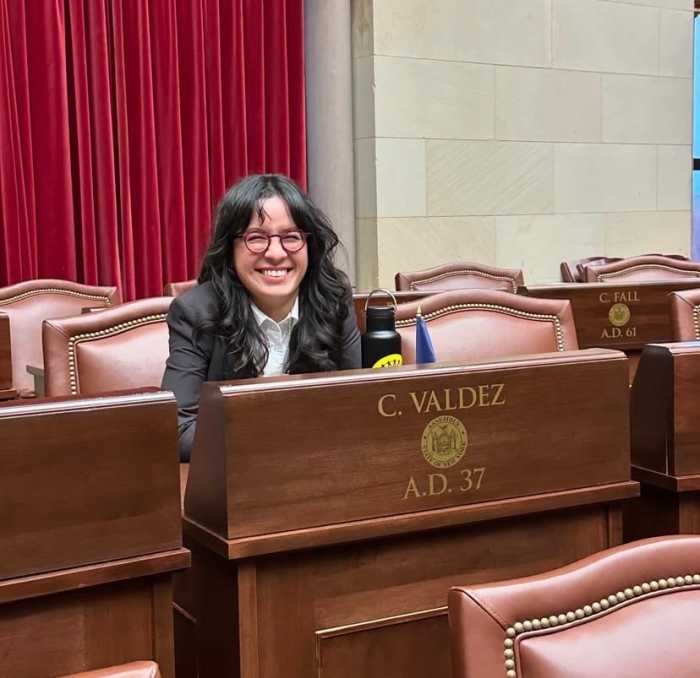Mayor Eric Adams could be headed for a legal showdown with Public Advocate Jumaane Williams over Hizzoner’s July 27 executive order suspending parts of a law banning the use of solitary confinement in city jails.
On Monday, the mayor again defended his actions to halt the solitary ban a day before it was due to take effect. Meanwhile, the public advocate said his office and the City Council were mulling taking the administration to court over the order.
During an unrelated July 29 news conference in the Bronx, Mayor Adams pushed back against criticisms over the weekend that his executive order was essentially continuing the use of solitary confinement in city jails. He argued the practice was discontinued in 2019, well before the law passed earlier this year.
“We don’t have solitary confinement in New York State, it doesn’t exist,” Adams said.
However, many pols and advocates charge the city still uses similar practices of holding inmates in isolation for extended periods. They often cite research showing the practice can cause acute mental health issues like anxiety, depression and suicidal ideation for those subjected to it.
Adams’ executive order, which came after he declared a state of emergency within the city’s jails Saturday night, suspended parts of the law banning solitary — Local Law 42.
Specifically, the mayor’s action paused a four-hour time limit for holding detainees in “de-escalation confinement” if they pose a danger to themselves or others and a limit on the use of restraints on detainees when they are being transported.
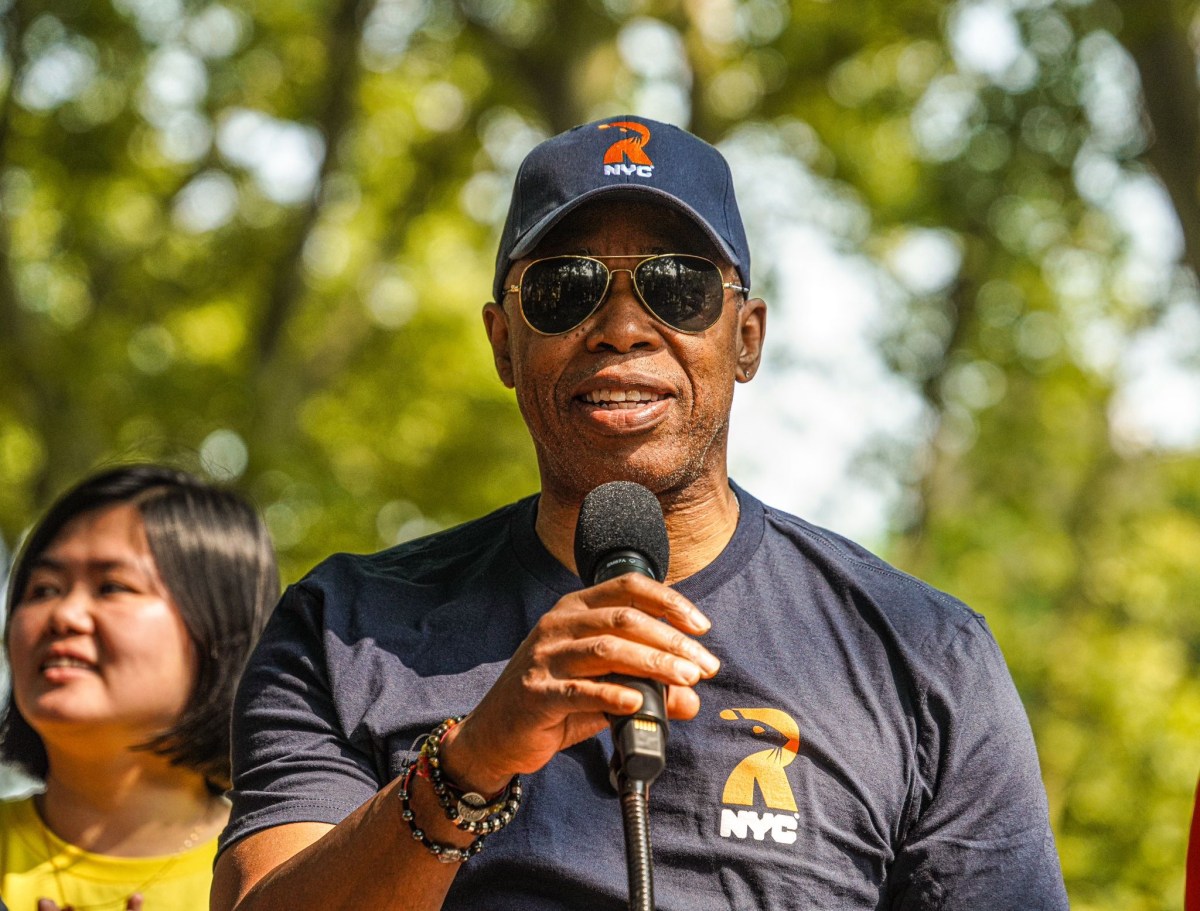
The law, which the City Council enacted via an override of the mayor’s veto in January, further mandates that detainees who are placed in longer-term restrictive housing be let out of their cells for 14 hours a day and have access to the same programming available to other inmates.
Mayor Adams argued his executive order is aimed at addressing safety concerns for inmates and corrections officers he says were raised by Steve Martin, the federal monitor for tracking violence on Rikers Island, around the law’s implementation. He also contended his action is only a 30-day pause intended to give the administration time to figure out how to safely implement the law.
“We did an emergency executive order that was narrowly tailored to the problems that the monitor stated were dangerous to inmates and dangerous to those civilians and correction officers,” he said. “And all that we ask is for time for the monitor and a judge to analyze these parts of the bill that the monitor stated is dangerous and can bring harm.”
‘You are not above the laws’
But Williams, during his own Monday morning press conference, said the law was designed in anticipation that the administration would claim it no longer uses solitary confinement. That is why, he said, it was written to specify instances where detainees can and cannot be separated from the general jail population, regardless of how solitary confinement is defined.
Local Law 42’s main goal, Williams said, is limiting “prolonged isolation.”
“We defined what we said you cannot continue to do, which is you cannot continue to have prolonged isolation of people,” Williams said. “That is still happening.”
The public advocate derided Adams’ executive order as, what he considers to be, a thinly veiled attempt to avoid enacting the law indefinitely — given the fact that Adams issued it at midnight on a Saturday, shortly before it was supposed to take effect on Sunday.
“I don’t think it’s just a 30-day pause, I think that’s just a euphemism,” he said. “But what we should be doing now and in 30 days is trying to figure out how to implement this. … We should come to the table and have a conversation.”
Additionally, Williams said he and the City Council are weighing taking legal action to force the administration to implement the law, following the council passing a resolution earlier this month authorizing it to bring a suit over the measure.
The public advocate said Adams’ handling of the solitary bill is just the latest instance of him either ignoring or blocking laws passed by the City Council that were passed over his objections. Those include a measure to subject more mayoral appointments to City Council approval and a package of laws expanding access to city-issued housing vouchers.
“We are elected officials as well and there are laws that we put in place,” he said. “You are not above the laws Mr. Mayor, you simply are not. So please stop abusing your power and join us in an honest conversation on how to keep people safe.”
Read More: https://www.amny.com/politics/
